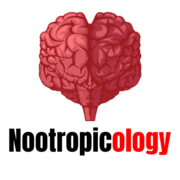What Nootropic is Most Like Adderall?
In this article, I will take a closer look at 5 Nootropics that are similar to Adderall (but without the side effects).
In the past year or two, nootropics have become a very hot topic, and for good reason. The brain is an underdeveloped organ. While it does so many things, there is still more that can be done with it.
Adderall is a psychostimulant medication prescribed for people with ADHD and other conditions involving short attention span or hyperactivity. It contains amphetamine salts which improve concentration and reduce hyperactivity by increasing dopamine levels and norepinephrine activity in the brain.
Like most drugs though Adderall has side effects which include loss of appetite (weight loss), insomnia, nausea, etc. Most people report that their mood improves when taking Adderall but this could be due to the increased dopamine levels rather than anything else.
5 Nootropic Alternatives to Adderall
5. Piracetam
Piracetam was first discovered in 1964 by a Romanian chemist. It is the world's first nootropic and recognized as one of the greatest achievements in pharmacology.
It is a racetam and was used as a potent cognitive enhancer in Russia during the Soviet Union, Eastern Bloc and even China.
Piracetam has been used to treat Alzheimer's disease, a mild cognitive impairment which is a pre-clinical stage of Alzheimer's disease, memory loss after stroke, dyslexia, Alzheimer's type dementia, and many more ailments.
Piracetam improves attention span and enhances learning ability by enhancing acetylcholine levels in the brain (this neurotransmitter helps control memory formation).
It also increases blood flow which increases oxygen supply to the brain. It also has other benefits such as anti-inflammatory effects on the body that improve joint pain while reducing migraines for example.
4. Noopept
Noopept is widely known for being able to improve memory and cognition in comparison to Piracetam (a racetam).
It was discovered in 2001 by a Russian chemist. Noopept has many of the same benefits as Piracetam, and scientists are looking at it for a number of neurological disorders
Amongst them is Alzheimer's disease which is why it is widely used today as a nootropic supplement.
It improves attention span, learning ability, and memory and even contains anti-inflammatory effects while reducing joint pain (which makes it perfect for bodybuilders).
3. Vinpocetine
Vinpocetine is found in certain types of mushrooms and is mainly used to treat vascular problems such as strokes by stimulating cerebral blood flow (as mentioned above).
It can also improve memory, concentration, and mood.
This nootropic works in the brain by improving blood flow, which increases oxygen supply to the brain which makes it an ideal choice for improving intelligence.
It improves learning ability and performance on tasks requiring mental function such as playing video games or reading books. It also prevents age-related memory decline (also known as cognitive decline) that occurs with age.
This is why it is widely used by medical practitioners for people with memory problems associated with old age and the elderly.
2. Aniracetam
Aniracetam is an ampakine nootropic that enhances the neurotransmitter acetylcholine. Just like Piracetam, it improves brain activity and learning ability. It also increases blood flow to the brain which improves oxygen supply to it.
This makes Aniracetam a perfect supplement for old-aged people as well as students who need more blood flow and oxygen supply to the brain for better thinking and concentration.
Aniracetam has anxiolytic properties meaning that it reduces anxiety, panic attacks, fear and even depression by increasing serotonin levels in the brain (serotonin is a neurotransmitter responsible for mood regulation).
Increasing these levels improves mood but only temporarily while taking Aniracetam so when you discontinue usage you may experience mood problems again (this will vary from person to person).
1. Alpha GPC
Alpha GPC is a choline compound also known as α-glycerylphosphorylcholine. It is an ingredient in nootropic supplements for people that have memory problems and attention deficit hyperactivity disorder (ADHD).
It increases acetylcholine levels in the brain and improves numerous cognitive functions.
It is widely used to treat these disorders because it improves memory and concentration and reduces hyperactivity associated with ADHD.
It also has anti-aging effects by improving blood flow to the brain which increases oxygen supply to the brain, preventing it from being damaged by aging. Alpha GPC is a cholinergic nootropic (it works on cholinergic nerve pathways).
Cholinergic means that it stimulates acetylcholine receptors in the brain which are involved in memory and focus.
While Alpha GPC is a great supplement it is somewhat expensive for most people on a budget.
It also has higher chances of side effects such as nausea, headache or fatigue.
